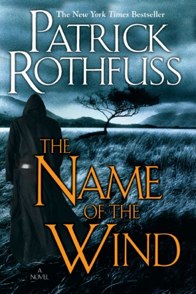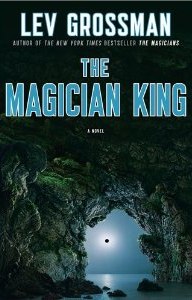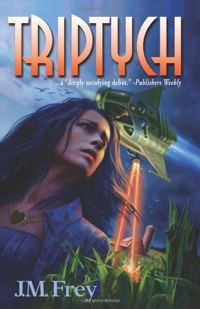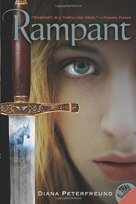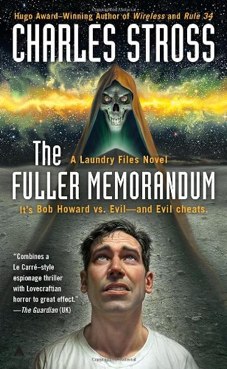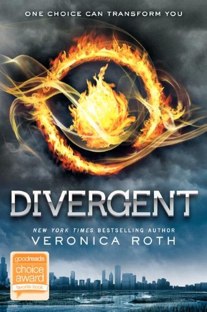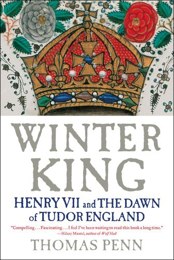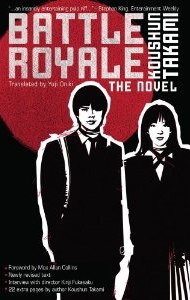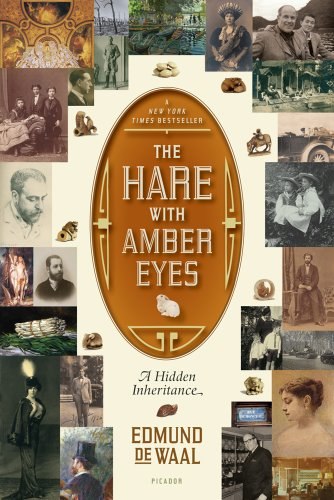Often cited as an inspiration or precedent for The Hunger Games, this Japanese dystopian novel, by sharing the underlying premise, gives a wonderful illustration of the importance of competent execution in even the most favorable circumstances.
Battle Royale gets off to a fast start. Forty eight middle school kids are being bussed on an outing. Suddenly, they all feel sleepy. They wake up and find themselves in The Program: they will leave the classroom at three minute intervals. Each student will be given a different weapon. They will kill each other; the survivor gets to go home.
Everything goes wrong here. Where The Hunger Games is often hamstrung by its relentless focus on the hero’s point of view, Battle Royale flits wherever it likes, reducing its pacing to mush punctuated by body counts.
Yuji Oniki’s over-literal translation does the book no service at all; all the students come out with the same slightly-accented voice, and while this might be what the author put on the page it is surely not what he wanted to do. In an afterward, he says Shogo’s dialog is patterned after Hawk in Robert B. Parker’s Spenser mysteries. Now this is an incongruous image – I’m not sure that any Japanese middle school kid could really sound a lot like Hawk — but I’d think Hawk would be just about the easiest character to pastiche you could ask for. I’ve read every line Hawk spoke, and the idea never crossed my mind.
There’s almost no description, either. I had to ask Japanese speakers to figure out what “middle school” might be in the original because, for hundreds of pages, I couldn’t figure out whether these forty-eight students were meant to be in eighth grade or twelfth. Since writer and translator are both living and can (presumably) talk, it might have been prudent to add a bit of description to the translation’s description of the action. Some of the dialogue, I think, represents polite or even formal discourse between boys and girls on their very best behavior. The Japanese reader knows the gestures that accompany these words, but the American reader could use some help.
Swarthmoron and CO that I am, in The Hunger Games I was always keeping my eye out for pacifism. Here, almost half the class opts immediately for some variant of pacifist rejection, ranging from the immediate suicide of two lovers to a variety of more-or-less doomed rebellions. None are interesting: the lovers leap over their cliff without evoking a sigh, the rebels flourish and fail in a chaos of happenstance.
The book assumes that boys and girls are completely different and hints that a separatist society – girls without boys – might be more tenable than risking contact. At any rate, accidental contact with a boy leads to universal disaster, which makes the boy a little sad. But since he had no role in the disaster and has a girl to protect (because his pal, now dead, had a secret crush on her), the disaster doesn’t mean much to him or anything to us. The book is deeply, casually sexist to no particular point, and would be deeply immoral if we cared enough about these kids to make them matter. The Hunger Games does itself a favor in avoiding firearms; Battle Royale spenda too much time comparing Lugers to Uzis and not enough letting the poor kids look their victim in the eye.
April 26, 2012 (permalink)
